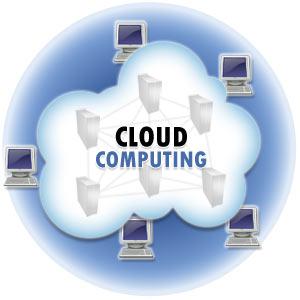Cloud computing is very much technology of the moment but it would be unfair to view it as a flash in the pan which will be superseded and forgotten in a few months or years.
The impact of Cloud Computing in the UK is sure to endure because of the benefits which it offers to businesses across a range of sectors. The cloud can be a force for good regardless of the industry in which you operate, but to appreciate its positive aspects it is first necessary to identify them.

Scalability
The first and perhaps the most important asset of any cloud computing system is the fact that it can be entirely scalable to meet the needs of businesses on an individual basis.
If you invest in software, data storage and security as a service via a cloud platform then you will be able to increase your investment in this area as your business grows, as well as having the option to temporarily augment throughput to cope with spikes in usage.
Because the cloud is not as reliant on your own in-house systems you will not have to bear the burden of handling any necessary upgrades to facilitate expansion, which means that your business will not be restricted and you can grow organically as the cloud grows with you.
Productivity
There are many benefits to using Cloud Computing which are associated with improved productivity in the workplace. Remote working is perhaps the most noteworthy, because it means that you can prepare to mitigate the impacts of in-house downtime or other unpredictable hazards which might otherwise make it impossible to continue business as usual.
By giving employees the flexibility to work from home or while out in the field through cloud-based services, you will make it far easier for staff to remain productive no matter where they are.
This also relates to the process of collaboration and the increasing irrelevance of geographic location which has been fuelled by the growth of the cloud.
If you have multiple sites across the country or the world, the cloud will help to break down boundaries between these places so that you can jointly work through important initiatives and share innovations without being bounded by your respective physical locations.
Cost Efficiency
The costs associated with migrating to the cloud are generally found to be lower than implementing the same level of technology in-house because the responsibility for things such as security, maintenance and consistent energy supply will be in the hands of a third party.
Future-proofing
This benefit is essentially a cumulative combination of all of the previous elements, because the cloud is an intangible, amorphous thing which is perpetually pushed forwards as providers strive to offer the best levels of service using the latest hardware and software.
Because users are collectively investing in improvements in the cloud by buying or renting services from providers within the industry, there is an incentive to make sure that the cloud will be ready for any future developments.
The decreased reliance on in-house hardware also means that businesses will not necessarily have to map out their own future hardware and software purchases or gear up for upgrade cycles which might otherwise leave them out of pocket or out of date, both of which can restrict the ability of companies to grow.
